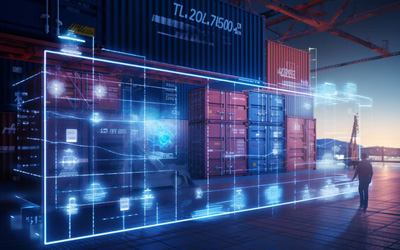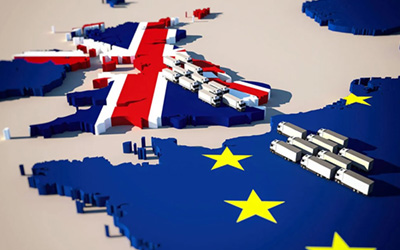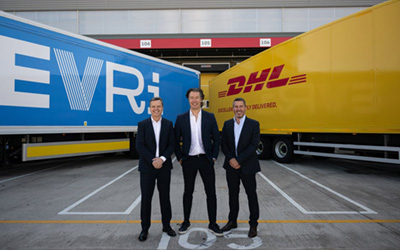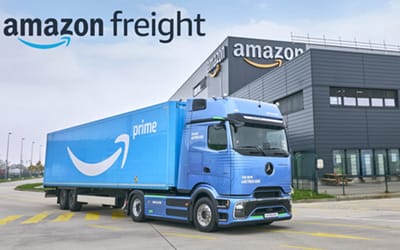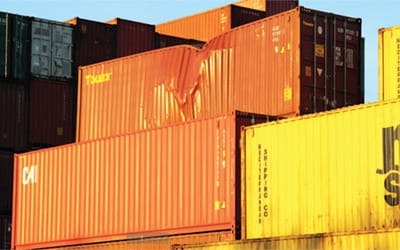Technology and Its Impact in Freight Forwarding: Charting the Path Forward
In a world where e-commerce and technological advancements reign supreme, traditional freight forwarding services find themselves facing a formidable challenge. The threat to these agencies is no longer limited to competition from ocean carriers alone; it now emanates from logistics startups, digital freight forwarders, and the relentless march of new technology in freight forwarding. To survive and thrive, the industry must undergo a transformation driven by technology in freight forwarding and automation.
The key hurdles facing the freight forwarders sector are the integration of cutting-edge technologies into traditional practices and the transition toward a future where technology plays a pivotal role.
This transformation extends not only to the freight forwarding sector itself but also to its partners, such as ports, carriers, and customers. To navigate this shifting landscape, the industry must embrace revolutionary technologies like machine learning, artificial intelligence, and the Internet of Things (IoT), all of which heavily rely on the analysis of customer data. Thus, technical integrations are not merely an option but a necessity, serving as a two-way channel of information flow.
On one hand, they encompass all the customer-related data required to tailor services, pricing, and offers, while on the other, they incorporate vendor-related information essential for creating customized offers for customers.
Advancements for Technology in Freight Forwarding
Technical Integrations
One of the most remarkable advantages of technical integrations lies in their cost-effectiveness. These integrations do not demand substantial investments but rather agile innovations that enhance the overall efficiency and intelligence of the operation.
A simple API connection, in some cases, can prove to be a game-changer in technology in freight forwarding delivering added value to customers.
Blockchain Technology
As we increasingly automate our systems, the need for heightened security becomes paramount. Blockchain technology in freight forwarding is spearheading this paradigm shift, reinforcing the industry’s security infrastructure.

Blockchain is a shared, immutable ledger that facilitates the process of recording transactions and tracking assets in a business network. An asset can be tangible (a house, car, cash, land) or intangible (intellectual property, patents, copyrights, branding). Virtually anything of value can be tracked and traded on a blockchain network, reducing risk and cutting costs for all involved.
Why blockchain is important:
Business runs on information. The faster it’s received and the more accurate it is, the better. Blockchain is ideal for delivering that information because it provides immediate, shared and completely transparent information stored on an immutable ledger that can be accessed only by permission-ed network members.
A blockchain network can track orders, payments, accounts, production and much more. And because members share a single view of the truth, you can see all details of a transaction end to end, giving you greater confidence, as well as new efficiencies and opportunities of technology in freight forwarding.
Artificial Intelligence and Machine Learning
Artificial intelligence and machine learning are integral components of robotic process automation. They find application in a wide array of scenarios, from enhancing customer service through chat-bots to conducting targeted searches for the best offers.
Furthermore, they facilitate the operation of autonomous machinery and inventory management tools in warehouses and smart ports, enabling predictive maintenance and optimizing cargo handling. Robotic process automation is pervasive and increasingly influential, empowering technology in freight forwarding to harness the data for customer pattern recognition, real-time performance tracking, business opportunity forecasting, and tailored service delivery, all supported by actionable data.
Internet of Things (IoT)
The Internet of Things (IoT) constitutes a network of physical devices, vehicles, buildings, and other items embedded with electronics, sensors, software, and connectivity.

This network facilitates seamless data exchange with other devices and systems. Such transparency brings about more effective tracking by providing real-time access to transportation and container data. It also enhances security through bar-code integration, ensures better control over sensitive cargo using sensors, and optimizes asset utilization while reducing costs of technology in freight forwarding.
Cloud-Based Solutions
Cloud computing has emerged as an indispensable component of the global economy, and its benefits extend to both large corporations and small businesses.
 Cloud computing services enable the storage of critical information and its innovative utilization. Details such as customer budget, routes, partners, transit times, special conditions, specific terms, storage limitations, and more can significantly enhance operational efficiency and productivity.
Cloud computing services enable the storage of critical information and its innovative utilization. Details such as customer budget, routes, partners, transit times, special conditions, specific terms, storage limitations, and more can significantly enhance operational efficiency and productivity.
Furthermore, the adoption of cloud-based Customer Relationship Management (CRM) systems is steadily increasing across various industries and enhancing technology in freight forwarding.
What Lies Ahead
The road ahead promises more automation, the judicious utilization of data, and rapid changes. Digital forwarding is set to become a dominant force in the technology freight forwarding industry, compelling traditional freight forwarders to embrace a broader spectrum of technological tools.
Automation will extend to a multitude of processes, aligning customer expectations with those of online businesses that continuously evolve. A paradigm shift is also on the horizon, where humans will transition from executing and updating processes themselves to verifying their accuracy.
With the convergence of big data utilization and advancing technology in freight forwarding, the vision of an ideal supply chain is no longer a distant dream but an impending reality. Technology in freight forwarding stands at the cusp of a technological revolution, ready to chart its course toward a future where innovation and efficiency go hand in hand. If you feel you would like any further information on the advancements of your shipping needs and how we can help please feel free to get in touch with SARR Logistics UK we are always look for new and innovative ways to help and improve your business and the smooth flow of all your shipping requirements..


